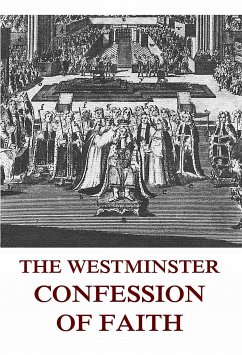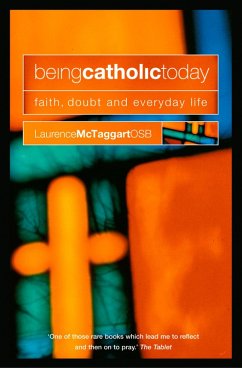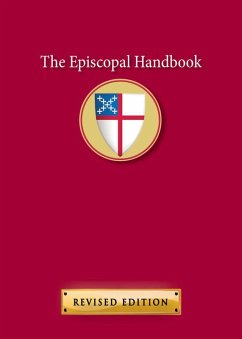
The Scots Confession of Faith (eBook, ePUB)

PAYBACK Punkte
0 °P sammeln!
In "The Scots Confession of Faith," John Knox articulates a bold, comprehensive vision of the Reformed Christian doctrine that significantly influenced Scotland's Protestant Reformation. Written in 1560, this confessional document is characterized by its rigorous theological framework and poignant clarity, reflecting a blend of scripture and reason. Knox's work challenges the prevailing Catholic doctrines of the time, addressing key tenets such as grace, salvation, and the nature of the church with both fervency and precision. The Confession serves as a foundational text for Scottish Presbyter...
In "The Scots Confession of Faith," John Knox articulates a bold, comprehensive vision of the Reformed Christian doctrine that significantly influenced Scotland's Protestant Reformation. Written in 1560, this confessional document is characterized by its rigorous theological framework and poignant clarity, reflecting a blend of scripture and reason. Knox's work challenges the prevailing Catholic doctrines of the time, addressing key tenets such as grace, salvation, and the nature of the church with both fervency and precision. The Confession serves as a foundational text for Scottish Presbyterianism, establishing an essential theological context for future debates within Christendom. John Knox, a pivotal figure in the Protestant Reformation, exemplifies the spirit of reform through his passionate advocacy for a return to scriptural authority and the establishment of a purer form of worship. Knox's tumultuous life, punctuated by exile and opposition, imbues his writings with a sense of urgency and sincerity. His personal encounters with persecution and his fervent belief in the supremacy of God's word galvanized his mission to reform the church in Scotland, shaping not only his theological positions but also the broader Protestant landscape. This book is highly recommended for those interested in early modern European history, Reformed theology, and the socio-political dynamics of 16th-century Scotland. Knox's articulate expression of faith in "The Scots Confession of Faith" offers readers both profound insights and a compelling narrative of a community's struggle for spiritual autonomy, making it an essential addition to any theological library.
Dieser Download kann aus rechtlichen Gründen nur mit Rechnungsadresse in A, B, BG, CY, CZ, D, DK, EW, E, FIN, F, GR, H, IRL, I, LT, L, LR, M, NL, PL, P, R, S, SLO, SK ausgeliefert werden.













